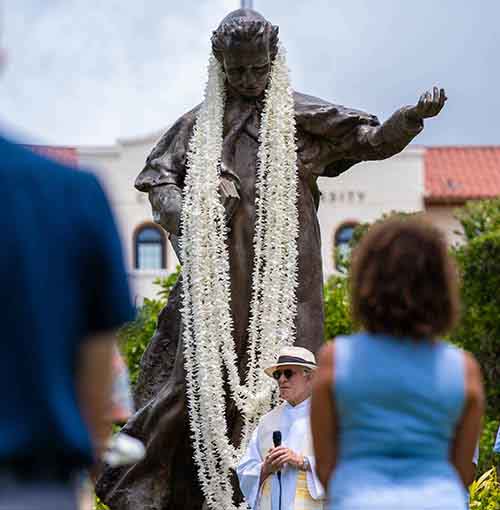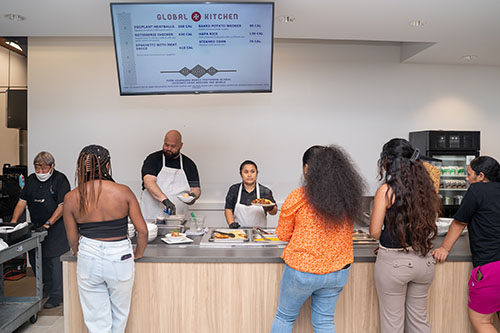Client Assistance Fund named after Chaminade Adjunct Faculty
Although Mental Health America ranks Hawaii as #2 in having a lower prevalence of mental illness and higher rates of access to care for adults, there still exists a mounting need for mental health services across the health-care sector. It’s a demand that the Samaritan Counseling Center Hawaii has been trying to fulfill since 1989.
The Rev. Dr. Gary Augustin joined the fight 25 years ago, and he has been an integral part of the nonprofit mental health counseling center ever since. It was only fitting then that the Center would recently rename the Client Assistance Fund, which provides mental health subsidies to individuals with limited financial means, to The Rev. Dr. Gary Augustin Client Assistance Fund.

Augustin joined the Center in 1997 as a Staff Counselor and Director of Education and Training, and over the years served as both Clinical Director and Executive Director. He is an adjunct faculty member at Chaminade University, a military family and life counselor, a licensed marriage and family therapist, and an ordained minister in Honolulu. He was also recognized with the Center’s prestigious Ho’omenemene Award in 2020.
In a video tribute to acknowledge his award, Abby Halston, Chaminade Associate Professor of Psychology and Clinical Director, MSCP Marriage and Family, praised Augustin as being “a pioneer within our Hawaii marriage and family community with milestones including being the 30th in our state to first be licensed, and has been instructing, supervising and mentoring our Chaminade MSCP students for the past 20 years.”
“The Rev. Dr. Augustin has tirelessly served his clients and the Center with humility, generosity and grace,” says The Rev. Dr. Bert Sumikawa, President of the Board of Directors of Samaritan Counseling Center Hawaii. “Renaming the Client Assistance Fund honors his contributions to the Center and his lasting legacy of hope, healing and compassion.”
The Client Assistance Fund has served Hawai’i since its 1989 inception, subsidizing mental health counseling for individuals, youth, couples and families who are uninsured, underinsured, elderly and low-income. It is a safety net for those with limited financial means, and helps to increase access to professional, affordable mental health care for the people of Hawaii.
In 2022, Samaritan Counseling Center Hawai’i served 609 clients and provided 5,179 counseling sessions. The Client Assistance Fund subsidized counseling for 260 clients and 36 percent of all counseling sessions.
“Dr. Augustin helped set me on a path of self-discovery and chart the road of inner growth,” says client Richard Morris. “He certainly helped me find a beneficial level of inner peace and outer understanding.”
Donations to The Rev. Dr. Gary Augustin Client Assistance Fund can be made online at www.samaritancounselingcenterhawaii.org/giving.









